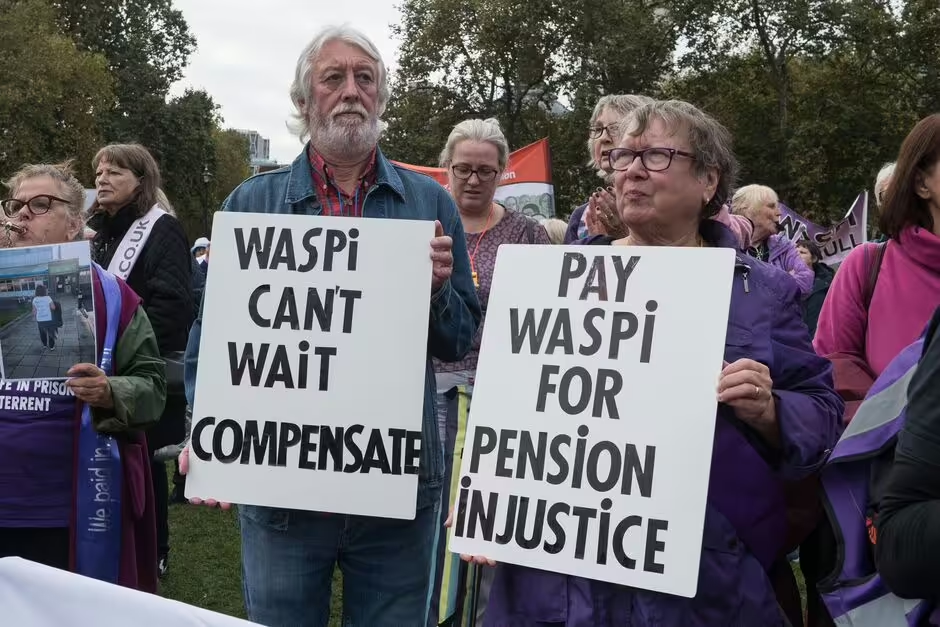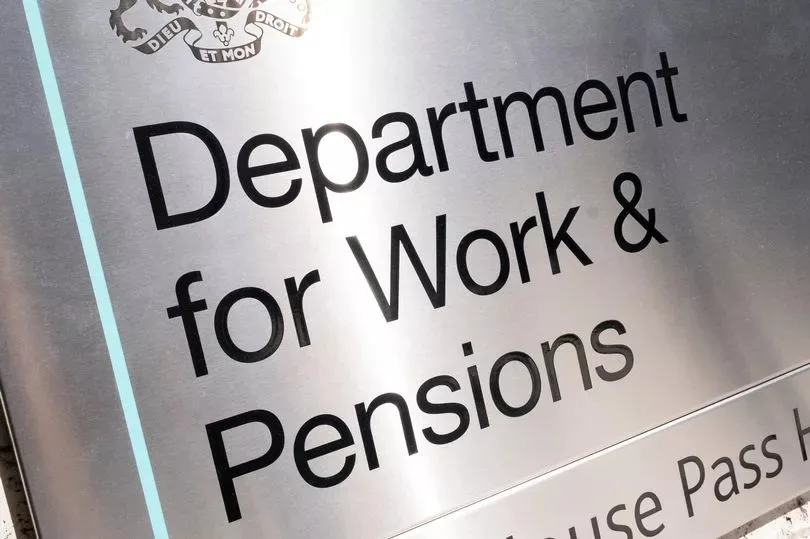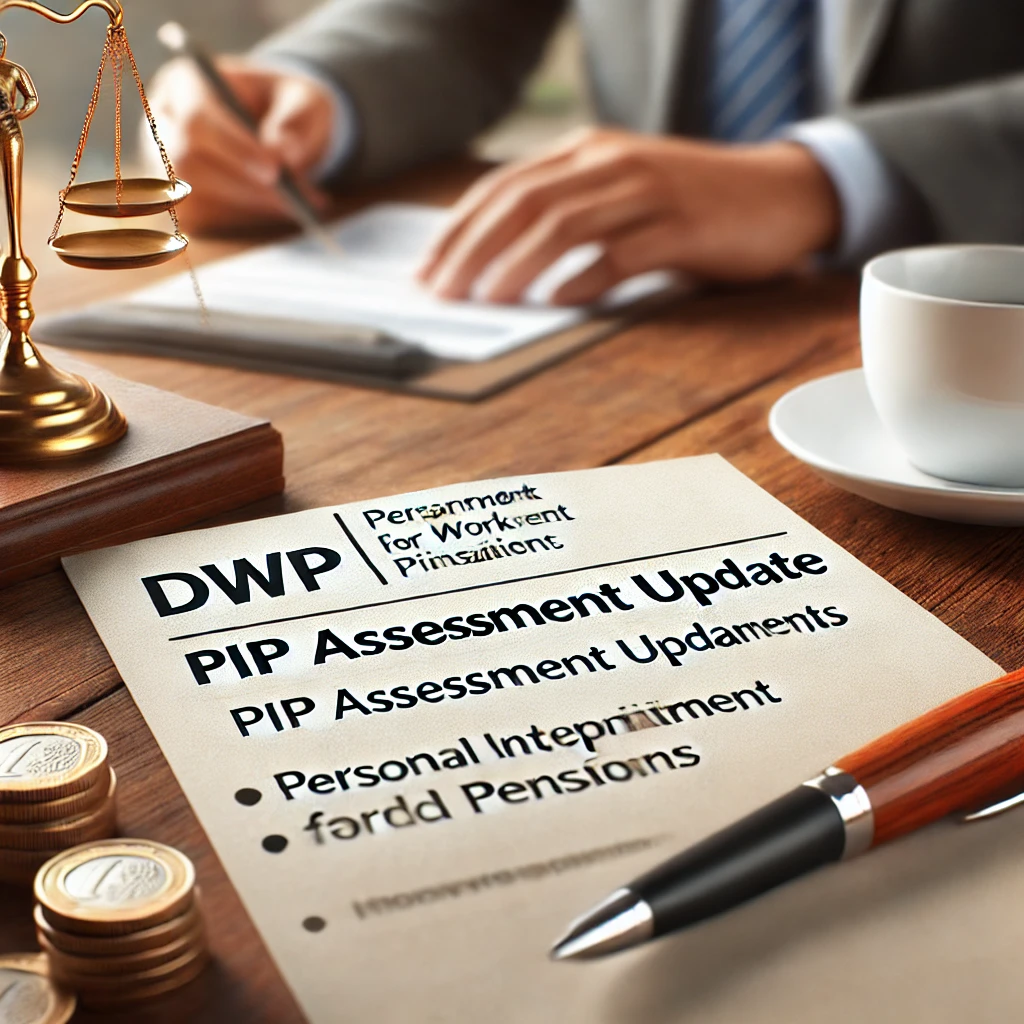
Image Credit: EXPRESS
The Women Against State Pension Inequality (WASPI) campaign continues to be at the forefront of discussions surrounding pension reform and compensation for women born in the 1950s. These women have faced significant financial hardship due to changes in the state pension age, which increased from 60 to 66 without adequate notice or time to prepare. The campaign seeks to address this inequality and demand compensation for the financial losses suffered by millions.
In this article, we’ll explore the WASPI compensation latest news today, provide updates on ongoing legal and political efforts, and examine what this means for the affected women.
What Is the WASPI Campaign?
1. The Origins of WASPI
The WASPI campaign was founded in 2015 by women impacted by the 1995 and 2011 Pensions Acts.
- 1995 Pensions Act: This legislation introduced changes to equalize the state pension age for men and women, gradually raising the pension age for women from 60 to 65.
- 2011 Pensions Act: Accelerated the timeline, causing some women to face unexpected delays in receiving their pensions.
2. The Issue at Hand
- Lack of Notice: Many affected women claim they were not given sufficient notice about the changes, leaving them unprepared for the financial impact.
- Financial Hardship: Women born in the 1950s have reported severe economic difficulties due to the sudden increase in their pension age.
WASPI Compensation: The Latest News Today
1. Parliamentary Debates
Today’s headlines focus on renewed debates in Parliament surrounding WASPI compensation.
- Cross-Party Support: MPs from various parties have called for the government to address the injustices faced by 1950s-born women.
- Pressure on Ministers: The Department for Work and Pensions (DWP) has faced mounting pressure to offer fair compensation to affected women.
2. Legal Proceedings and Ombudsman Update
The Parliamentary and Health Service Ombudsman (PHSO) has been investigating the DWP’s handling of state pension changes.
- Stage Two Findings: In 2021, the PHSO found that the DWP failed to adequately communicate the changes, constituting maladministration.
- Stage Three Progress: The Ombudsman is currently considering whether and how compensation should be awarded to those affected.
3. Potential Compensation Amounts
While the government has not confirmed any compensation scheme, estimates suggest that payouts could range between £10,000 and £20,000 per individual.
- Campaign Goals: WASPI is pushing for lump-sum payments to cover the financial losses incurred by affected women.
Also Read: DWP Bank Accounts for Pensioners: Everything You Need to Know
Impact on Women Born in the 1950s
1. Financial Struggles
- Loss of Income: Many women had planned to retire at 60 but were forced to continue working or rely on savings.
- Increased Poverty Rates: A significant number of 1950s-born women have faced poverty as a direct result of the pension age changes.
2. Emotional Toll
- Stress and Anxiety: The sudden shift in financial circumstances has led to emotional distress for many affected women.
- Health Impacts: The stress of financial instability has also exacerbated health issues for some campaigners.
What Are the WASPI Campaign’s Demands?
1. Fair Compensation
The campaign’s primary demand is for financial redress for women who were not properly informed about the changes.
- Lump-Sum Payments: WASPI advocates for substantial payouts to reflect the losses and hardship endured by affected women.
2. Acknowledgment of Injustice
- Apology from the Government: Campaigners want the government to acknowledge the mistakes made in handling the state pension age changes.
- Policy Reform: WASPI calls for better communication and transparency in future pension reforms.
Challenges Facing the WASPI Campaign
1. Government Resistance
The UK government has repeatedly argued that the changes to the state pension age were necessary to ensure the system’s sustainability.
- Cost Concerns: Offering compensation to millions of women could cost billions, a financial burden the government has been reluctant to take on.
- Legal Barriers: The government has defended its position in court, making it difficult for campaigners to secure immediate redress.
2. Divided Opinions
While WASPI enjoys widespread support, some critics argue that the campaign overlooks the broader need for pension equality and sustainability.
Support for WASPI Compensation
1. Public Backing
The WASPI campaign has garnered significant public support, with thousands attending rallies and signing petitions.
- Online Campaigns: Social media has played a crucial role in raising awareness and mobilizing supporters.
- High-Profile Endorsements: Celebrities and prominent figures have voiced their support for the campaign.
2. Cross-Party Political Support
Many MPs have spoken in favor of WASPI compensation, recognizing the injustice faced by affected women.
How to Stay Informed About WASPI Compensation
1. Follow Campaign Updates
- WASPI Website: The official WASPI website provides regular updates on the campaign’s progress.
- Social Media: Follow the hashtag #WASPI for the latest news and developments.
2. Join Advocacy Groups
Joining local or national advocacy groups can help you stay informed and contribute to the campaign.
Also Read: Lidl Extra Virgin Olive Oil: Quality, Affordability, and Versatility
Conclusion
The WASPI compensation latest news today highlights the ongoing battle for justice faced by 1950s-born women affected by state pension age changes. While progress has been made, with the Ombudsman acknowledging maladministration by the DWP, the fight for fair compensation is far from over.
As public and parliamentary support for the campaign grows, there is renewed hope that affected women will receive the recognition and financial redress they deserve. For now, staying informed and continuing to push for change are vital steps toward achieving justice for the WASPI generation.
FAQs About WASPI Compensation
1. What is the WASPI campaign?
The WASPI campaign fights for compensation for women born in the 1950s who were unfairly affected by state pension age changes.
2. Has the government agreed to pay compensation?
No, the government has not yet agreed to offer compensation, but legal and parliamentary efforts are ongoing.
3. How much compensation could women receive?
Estimates suggest that compensation could range between £10,000 and £20,000 per individual if a scheme is implemented.
4. What is the role of the Ombudsman in the WASPI case?
The Parliamentary and Health Service Ombudsman is investigating whether the DWP should compensate affected women for maladministration.
5. How can I support the WASPI campaign?
You can support the campaign by signing petitions, attending rallies, or donating to advocacy groups.






